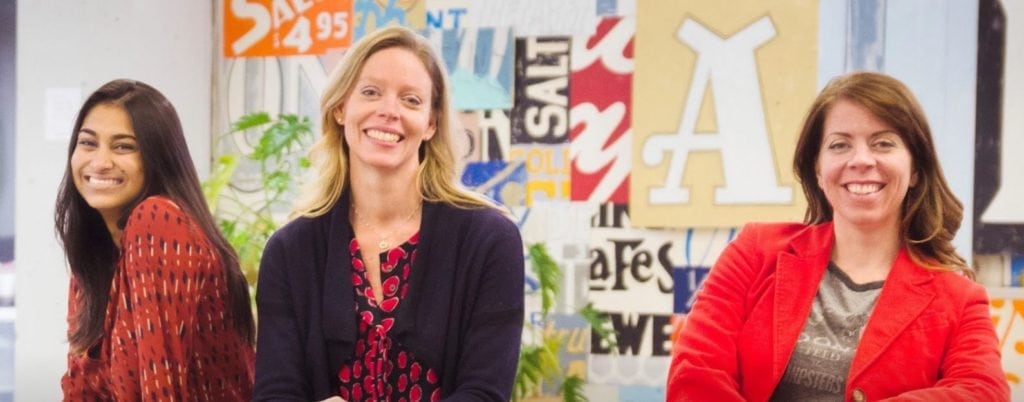Here’s a bit of a paradox for you: as the world seems to grow increasingly smaller through the use of communications technology and we have an unprecedented level of access into each other’s personal lives through social media, we still somehow manage to feel alone. And, even as the internet becomes an increasingly viable way of forging interpersonal connections (leading the average Joe to spend an ever-growing amount of time online seeking to network), it seems that the real movers and shakers of society (corporate employers, innovators, politicians…) seem to be abandoning the online scene in favor of face-to-face networking events and social solutions. You see, it seems that the people at the top have realized something that the rest of us are only just starting to comprehend: real relationships happen in real spaces, in the places where we meet face-to-face, person-to-person.
Our generation is slowly coming to realize that, convenient as social media might be, it can’t replace actual interactions. And in an increasingly competitive market, those moments of interpersonal communication are more important than ever: it is important to get them right.
SocialTables is committed to helping their clients get it right. Whether you are planning a wedding, networking event, fundraiser, or corporate mixer, Social Tables is there to see you through each step of the event planning process to ensure that your guests won’t regret leaving the chat rooms behind. Since 2011, the company has helped plan more than 8,000 meetings and events in the Washington, D.C. area. With a staff of event planners and social scientists ready to hand, they help you map the venue, create digital mock-ups of the space, manage invitations, RSVPs, and check-ins, and even create seating plans based on common interests or professional fields to ensure that your guests get the most out of the experience.
The founders recognize that social interactions not only meet a need for interpersonal contact, but are also the birthplace of great ideas, collaborations, and meaningful relationships. Thus, it is important that we get them right. The goal of SocialTables is simply to help you and your guests meet your goals. Maybe you just want to throw a party to show your guests a good time; or maybe you hope to bring great minds together in a collaborative social setting; maybe you just need to make sure that your next big meeting goes off without a hitch… Whatever you have in mind, SocialTables is there not only to help you iron out the logistics of your even, but also to help you create an electric social environment.
 Do you ever wonder what could be acheived in 54 hours? In 2016, Pittsburgh Startup Weekend Women’s Edition was hosted for the first time ever… and as a result, the winning team Go Jane Go’s Amelia App is now in the beta testing phase. Kate’s idea to create an app to connect women with other professionals in cities away from home was given a chance to develop when she and her sister Ellen attended Startup Weekend and met UX Designer Sanjana. Together they were able to create a solid foundation for their venture while not only winning the competion, but receiving resources to help them in their quest to develop it. These three individuals skills paired with the proper resources and enviroment accelorated the creation of a community womens app.
Do you ever wonder what could be acheived in 54 hours? In 2016, Pittsburgh Startup Weekend Women’s Edition was hosted for the first time ever… and as a result, the winning team Go Jane Go’s Amelia App is now in the beta testing phase. Kate’s idea to create an app to connect women with other professionals in cities away from home was given a chance to develop when she and her sister Ellen attended Startup Weekend and met UX Designer Sanjana. Together they were able to create a solid foundation for their venture while not only winning the competion, but receiving resources to help them in their quest to develop it. These three individuals skills paired with the proper resources and enviroment accelorated the creation of a community womens app.







 experience, Ross decided to make a more streamlined browser, and the Mozilla Project was born. The first software in the suite and in many ways the flagship development, Firefox, was immensely popular, and became the first real competitor to Internet Explorer. Other popular software developed by Ross include Thunderbird, the mail program in the Mozilla suite, and Parakey, a separate program that he sold to Facebook for a large profit.
experience, Ross decided to make a more streamlined browser, and the Mozilla Project was born. The first software in the suite and in many ways the flagship development, Firefox, was immensely popular, and became the first real competitor to Internet Explorer. Other popular software developed by Ross include Thunderbird, the mail program in the Mozilla suite, and Parakey, a separate program that he sold to Facebook for a large profit.
